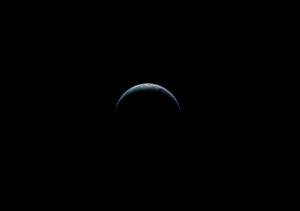This is an archive of prayers written for, or relevant to, the Fast of תִּשְׁעָה בְּאָב (Tishah b’Av, the 9th of the month of Av) in the Jewish calendar, commemorating the destruction of the first and second Temple in Jerusalem, among other catastrophes. Click here to contribute a prayer you have written for Tishah b’Av. Filter resources by Collaborator Name Filter resources by Tag Filter resources by Category Filter resources by Language Filter resources by Date Range
Many communities recite a series of poems interwoven with the Amidah on Purim. These poems, known as the “krovets,” were written by Elazar b. Rabbi Kalir, the greatest of the early paytanim. But lesser known than the krovets for Purim are the krovets for Tisha b’Av, written as well by Elazar b. Rabbi Kalir. A fine example of Elazar’s intricate poetry, the krovets for Tisha b’Av is rife with Biblical citations, finally culminating with the prayer for Jerusalem. Each stanza begins with five tightly rhymed lines beginning with a constant א followed by a quintuple half-acrostic on the second letter, then a poetic volta on the word אֵיכָה, followed by a Biblical citation, a verse starting with the last word in the citation, a letter from Elazar’s name, and a final Biblical citation. The krovets for Tisha b’Av is meant to be part of the morning service, tied into the cantorial repetition for Tisha b’Av. . . . Categories: Tags: Contributor(s): “Af Oraḥ Mishpatekha” is an ofan, a type of piyyut recited as a part of the Ḳedushah d-Yotzer liturgy as an introduction to Ezekiel 3:12. Specifically, it is an ofan written by the Rokeaḥ, R. El’azar ben R. Yehuda of Worms, for the morning liturgy on Shabbat Ḥazon, the Shabbat before Tishah b’Av. It is here included along with an original translation and with cited verses marked. Also included is a series of images from a 1714 maḥzor printed in Frankfurt au Main that includes the piyyut. To note, the text included above is not exactly the same as that of the 1714 maḥzor, having been edited in accordance with Isaac Meiseles’s 1993 critical edition of the Rokeaḥ’s work. . . . Categories: Tags: Contributor(s): “Bore ‘Ad Anah” is a ḳinah recited in a number of Sephardic communities on Tishah b’Av (or in some cases on Shabbat Hazon, the Shabbat preceding Tishah b’Av), particularly in the Spanish-Portuguese and North African traditions. The author is unknown, but his name is likely Binyamin based on the acrostic made up of the first letters of the verses. In the kinah, the Children of Israel are compared to a wandering dove caught in a trap by predators, crying out its father, God. The ḳinah was likely written as a poignant response to the Spanish Inquisition, appropriate to Tishah b’Av since the expulsion of the Jews from Spain occurred on the 9th of Av in the year 1492. The version presented here was likely censored, as many manuscripts have the fifth verse presented in the following manner directly calling out their Catholic oppressors,” יועצים עליה עצות היא אנושה זרים העובדים אלילים שלושה אם ובן ורוח כי אין להם בושה גדול ממכאובי.” “They counsel against her and she languishes, the strangers who worship three idols, father, son and spirit, for they have no shame and great is my suffering.” . . . Categories: Tags: Contributor(s): Supplemental prayers for the Birkat Hamazon on Tisha b’Av, Tu b’Av, and Shabbat Naḥamu. . . . Categories: Tags: Contributor(s): This is an original piyyut, inspired by the structure of the beloved Yom Kippur Ne’ilah piyyut El Nora ‘Alila. In the era of the Sanhedrin, every fast day would have a Ne’ilah service between Minḥa and the conclusion of the fast. While these are no longer in practice for any days other than Yom Kippur, the editor personally feels like it could be worth bringing them back. As part of this idea, this piyyut is meant to be sung after the end of Tishah b’Av mincha but before the fast ends, as we prepare for the weeks of comfort. It is expressly *not* a qinah. . . . Categories: Tags: Contributor(s): |



